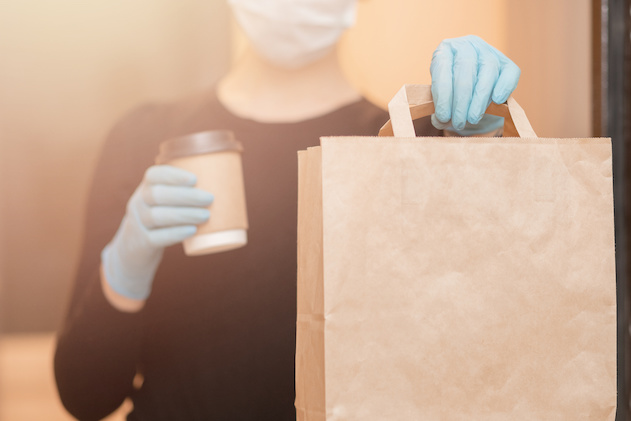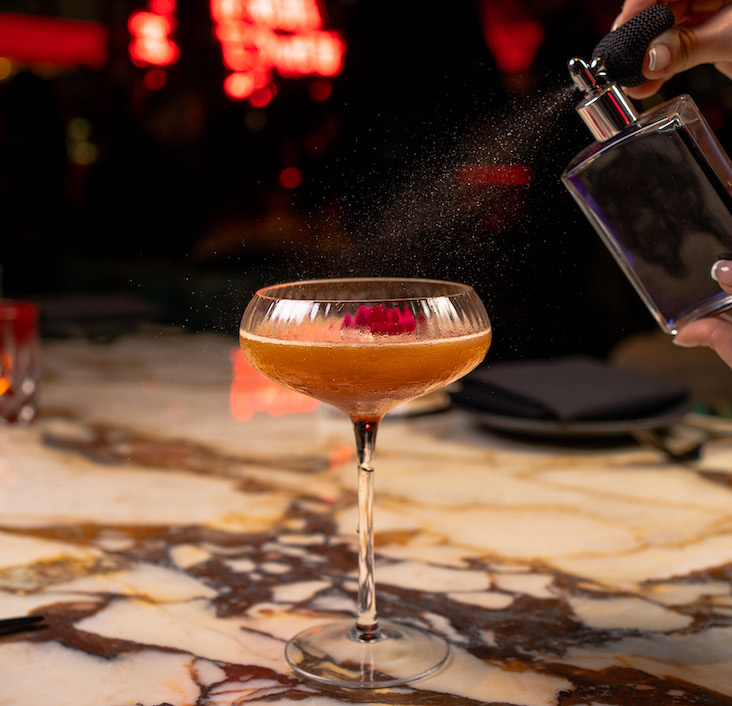Full-service restaurants immediately felt the business effects of the COVID-19 pandemic, as state and local governments issued stay-at-home orders to residents to further limit the spread of the coronavirus. Such orders also mandated the closures of or restricted the hours of operation or services offered by on-premise operators such as restaurants, bars and movie theaters.
The current international public health emergency has forced on-premise operators to quickly evolve and pivot their models to generate steady revenue—no easy feat from a business and legal standpoint. But there have been some creative revenue-generating solutions available, thanks to evolving business and legal opportunities.
For instance, some on-premise operators can engage with patrons through virtual experiential services and goods such as cooking classes or mixology lessons led by chefs and bartenders. Some might also convert real estate to shift their business model into, for example, a grocery store to sell packaged goods and meal kits, or government partnerships housing frontline medical workers, military personnel, or families impacted by the COVID-19 pandemic.
State and local governments have temporarily loosened enforcement of certain alcohol regulations and provided licensed alcohol industry members with new privileges and much-needed regulatory relief. For example, some jurisdictions allow full-service restaurants to sell and deliver packaged alcohol, and in several cases, to-go premixed cocktails.
Keep Compliant
Before moving forward with any business change to match the current consumer demand for at-home experiences, make sure each change is made in compliance with governing federal, state, and local laws and regulations. This is key, especially during this time of temporary regulatory relief and the ever-evolving circumstances.
For example, it’s important to determine whether the on-premise alcohol, food, health, zoning and other licenses and authorizations obtained at the state and local levels allow for the identified new revenue-driving opportunities at your establishment. These might include the sale of packaged or raw goods, large family feast meals or baking kits.
What’s more, you may need to offer new training to employees and agents working on your behalf. If you offer order-ahead, curbside pickup, or drive-thru service to patrons, ensure that the procedures in place align with governing state and local stay-at-home orders and social distancing measures.
Even virtual experiential offerings require some regulatory compliance consideration. In the context of a virtual mixology class, for instance, attendees should be at least 21 years old.
And before requiring that consumers purchase packaged alcohol from the retail establishment in order to participate in the mixology class, review state beverage laws to ensure such requirement is not prohibited. Some states, such as Arizona, prohibit licensed on-premise retailers from offering an inducement, like a prize, service or rebate, to consumers if receipt of the inducement is contingent on the purchase of alcohol.
Carry-out Considerations
The vast majority of states have adopted emergency regulations or policies that allow on-premise operators to sell alcohol beverages for carryout and/or delivery. Similar to the fact that alcohol beverages are regulated differently from state-to-state, each state and local on-premise retail alcohol delivery regulation has different requirements and restrictions.
States generally only allow a licensed on-premise retailer to deliver alcohol beverage products of the beverage types (i.e., beer, wine, spirits) that their license authorizes retail sales of. On-premise operators need to review the applicable state’s emergency rule or policy document to determine whether all beverage types may be sold for off-premises delivery or whether it is limited to certain beverage types, like beer and wine.
Some states, such as Virginia, permit on-premise operators to sell to-go premixed cocktails in sealed containers. Others, like Illinois, prohibit on-premise businesses from selling to-go cocktails due to laws requiring alcohol to be sold in the manufacturer’s original container, concerns with impaired or intoxicated driving, and health and sanitation concerns.
These temporary delivery and off-premises sales privileges also may include myriad restrictions relating to the number of to-go premixed cocktails per order, if permitted, total volume of alcohol per order, container type, hours of sale and delivery, the age of the delivery driver, record keeping and age verification, or food-related requirements. Further, unless an emergency rule or policy is adopted on the subject, on-premise operators must continue to comply with applicable Happy Hour laws.
You should also have internal policies to protect employees who are delivering alcohol beverages on your behalf. For example, provide hand sanitizers, masks and gloves to all employees; have drivers use printed signatures with consumers and make sure that all practice social distancing measures. Perhaps most important, urge all employees who are feeling sick to stay home.
Hannah Becker is an associate in GrayRobinson’s Tampa, FL, law office and a member of the firm’s Nationwide Alcohol Beverage & Food Law Department.







